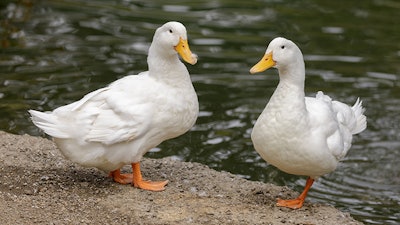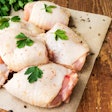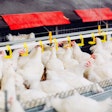
When it comes to production, most people assume that the preferences of ducks are the same as those of chickens or turkeys. Unfortunately, that’s a common misperception.
“Most of the information we have on ducks is pretty antiquated or older,” said Greg Archer, Ph.D., an associate professor and Texas A&M AgriLife Extension Service poultry specialist in the Texas A&M College of Agriculture and Life Sciences Department of Poultry Science.
“We know a lot about broilers and layers, but we haven’t really looked at ducks. A lot of times, we just assume that it’s going to transfer over. The research I’ve done has showed that what we think will transfer over doesn’t. Just because they’re a bird doesn’t mean they’re going to react exactly the same as a chicken does.”
Duck meat isn’t as popular as chicken and turkey in the U.S. but is a popular export to China and Europe.
The average American consumes just 0.34 pounds of duck each year, according to the U.S. Department of Agriculture (USDA). Comparatively, we ate an average of 100.6 pounds of chicken in 2022, the National Chicken Council reports.
Lighting preferences
For example, while there has been a lot of research concerning the lighting preferences of chickens, but less is known about which hues ducks perform best under.
Archer’s research revealed that meat ducks prefer redder light, which he attributes to the fact that ducks typically live in open, exposed areas near bodies of water in nature. This is like the preferences of layer chickens, but contrary to what works best for broilers.
Probiotics
Another one of Archer’s projects focus on how probiotics impact the behavior and fear responses of ducks, as well as to whether probiotics can help relieve heat stress in ducks.
“Most of the stuff people just apply to the duck. They say ‘well, we think this dose will work on a duck,’ but there haven’t been a lot of studies out there saying what the appropriate level of this probiotic is,” Archer explained.





.jpg?auto=format%2Ccompress&fit=crop&h=167&q=70&w=250)











